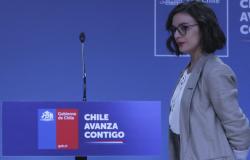
Image source, Getty/Mila Palm Collection, Vienna
- Author, BBC News World
- Role, Drafting
-
2 hours
If what happened on the night of Friday, October 25, 1946 had happened at this time, and celebrities in philosophy attracted the same attention as those in other fields, social networks would have exploded.
The protagonists of the confrontation that took place in a hall at the University of Cambridge, England, could hardly have been more outstanding.
In one corner was Ludwig Wittgenstein, considered by many to be the most brilliant philosopher of the modern era, who, then as now, is often described with the adjective “great.”
In the other, Karl Popper, one of the most important philosophers of science of the 20th century, who would later confess: ”I admit that I went to Cambridge in the hope of provoking Wittgenstein.”
Well he did it. The furious 10-minute brawl they had not only went down in history but continued to fuel an endless debate among the followers of each philosopher.
And ‘poker’ is the appropriate verb since the matter involved a poker of embers from the fireplace.
According to Popper, the only one of the two philosophers who wrote about the events: “after a surprisingly short time, I received a letter from New Zealand asking me if it was true that Wittgenstein and I had beaten each other, both armed with pokers.”
However striking it may have been, that early version was dismissed: there were never two pokers.
But one was enough to make the episode so memorable.
However, to this day, No one knows for sure what happened and how.despite the fact that there were several witnesses to the incident, as reported in their book “Wittgenstein’s Poker” by John Eidinow and David Edmonds.
three titans
Image source, Getty Images
The occasion was a meeting of the Cambridge University Moral Sciences Club.a discussion group of philosophers and philosophy students that has met weekly since it was founded in 1878.
Wittgenstein was president of the club and Popper, who had recently been appointed reader in logic and scientific method at the London School of Economics and Political Science, was invited to present a paper entitled “Do Philosophical Problems Exist?”
Among the attendees, the Nobel Prize winner in Literature and already recognized social activist stood out. Bertrand Russellone of the greatest philosophers of the 20th century for his contributions to logic, epistemology and philosophy of mathematics.
It was the first and only time that these three titans of philosophy were together.
Russell was the meeting point.
He admired “The Open Society and Its Enemies” (1945), the work that Popper he had written during the Second World War, which became one of the great classics of political science.
It was a harsh condemnation of the intellectual origins of German and Soviet totalitarianism, whose roots he traced to Plato, Marx and Hegel, and an equally powerful defense of liberal democracy.
Russell had a close relationship with Wittgenstein since he had become interested in mathematics after reading a book by Russell and, at the age of 22, he had gone to Cambridge to study with him.
Image source, Getty Images
“He was strange and his ideas seemed strange to me, so for a whole semester I couldn’t decide if he was a brilliant man or just eccentric.“Russell wrote in “Portraits of Memory.”
“At the end of his first semester at Cambridge he came to me and said, ‘Could you tell me if I’m a complete idiot or not?’
“I replied: ‘My dear friend, I don’t know. Why do you ask me?’
“He said, ‘Because if I’m a complete idiot, I’ll become an aeronaut; but if I’m not, I’ll become a philosopher.'”
Their relationship soon became one of equals and, although they became intellectually estranged later, when Wittgenstein died in 1951, Russell described meeting him as “one of the most exciting intellectual adventures of my life”.
But between Popper and Wittgenstein there was nothing but disagreementsdespite the fact that several affinities could have brought them closer.
Both came from Vienna and “although Wittgenstein was 13 years older, they had shared the cultural enthusiasm of the last years of the Austro-Hungarian Empire,” Eidinow and Edmonds note.
“They also had in common the impact on their lives of the lost First World War, the attempt to raise a modern republic on the ruins of the monarchy, the descent into the corporate state and the maelstrom of Hitler and Nazism.
“With their Jewish origins, their interest in music, their contacts with cultural radicals, their training as teachers, and their connections to the source of logical positivism, the Vienna Circle, Wittgenstein and Popper had many potential links.”
However, when it came to the nature of philosophy, Although both were equally vehement, they defended antagonistic visions.
Of course, they agreed on one aspect: both believed they had freed philosophy from the errors of the past and felt responsible for its future.
It was an explosive cocktail. And it exploded.
The metallic instrument of discord
Image source, Getty Images
What broke out that day in that hall at the University of Cambridge was a battle of philosophical perspectives.
Let us remember that Popper’s presentation was “are there philosophical problems?”, and he argued that yes, but For Wittgenstein what existed were linguistic enigmas.
According to Popper, in his memoirs “Endless Search: An Intellectual Biography,” published in 1974, more than two decades after Wittgenstein’s death, he gave him “a list he had prepared of philosophical problems, such as: Do we know the things through our senses? Do we obtain our knowledge by induction?
“Wittgenstein dismissed them as more logical than philosophical.”
In his version of what happened, “Wittgenstein, who was sitting near the fire and had been playing nervously with the poker, which he sometimes used as a director’s cane to emphasize his statements.”
And, when a question arose about the status of ethics, he challenged it:
“‘Give me an example of a moral rule!’
“I replied: ‘Do not threaten visiting professors with pokers’.
“Then Wittgenstein, furious, threw down the poker and stormed away, slamming the door as he left.”
And that account of those 10 minutes in 1946 still provokes bitter disagreements, Eidinow and Edmonds confirmed, particularly the heated dispute over whether Popper lied when recounting what happened at the meeting.
Image source, Getty Images
His version of events appeared in several writings but it was three years after his death when it was repeated in a memoir published in the proceedings of one of the most learned bodies in the United Kingdom, the British Academy, which a storm of protests broke out.
Students who had been at the discussion had become scholars, such as Peter Geach, an ardent supporter of Wittgenstein and an authority on logic, who denounced Popper’s account of the meeting as “false from start to finish”.
Others present remembered what happened in various ways.
In one story, for example, Russell was involved in the confrontation and asked Wittgenstein to drop the poker.
In another, nothing out of the ordinary happened: there was no slam of the door, the philosopher took the poker only as a tool to clarify an idea, and it was after Wittgenstein left that Popper talked about the poker and said that one should not threaten to visiting professors.
In the end, it is not known and perhaps it is worth quoting what Russell once said to his biographer Alan Wood, talking about deeper topics: “The demand for certainty is something natural in man, but it is nevertheless an intellectual vice.”
Furthermore, as Eidinow and Edmonds point out, the story goes further.
It deals with the schism in 20th-century philosophy over the importance of language: a division between those who diagnosed traditional philosophical problems as purely linguistic entanglements and those who believed that these problems transcended language.
If he did it, it was not by chance, the authors say..
It was an opportunity to realize two central ambitions of his life: to defeat the fashionable linguistic philosophy of the 20th century and to achieve a personal triumph over the sorcerer Wittgenstein, that seductive character who had overshadowed him.
Remember that you can receive notifications from BBC News Mundo. Download our app and activate them so you don’t miss our best content.





